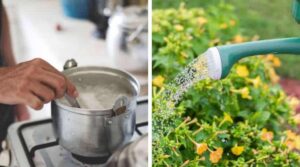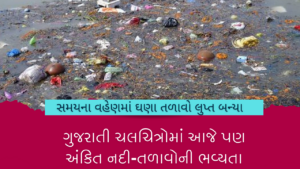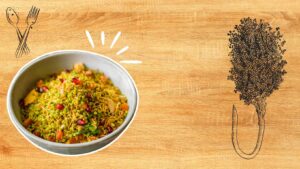World Food Day is planned to raise awareness of how our changing world impacts food production and distribution. It is more than simply a casual day of celebration. A number of issues are addressed, such as how agriculture must adapt to climate change or how migration impacts food security. Setting goals that would eventually result in creating a generation with no hunger is the larger aim.
On a more intimate level, World Food Day advises people about how they may alter everyday routines and choices to make a difference. While pondering over this year’s theme; “Water is life, water is food. Leave no one behind,” we could not stop thinking about one smart place to conserve water, which is the kitchen sink.
Due to a limited water supply before, a practise developed in Rajasthan where dishes were properly cleansed in a basin before being fed to plants. It is necessary for us to adopt excellent habits like the Rajasthani home model in contemporary Indian kitchens. The use of ‘masalas’ and oil in Indian cuisine, however, has the tendency to make kitchen wash water nutrient and oil rich. As a result, disposal and reuse must be handled carefully.
What can we do?
While actions like taking shorter showers and doing laundry less frequently have the most effect on reducing your household’s water use, some actions could be simpler. It’s safe to say that the majority of us discharge kitchen wastewater directly down the drain. But what if we could minimise and recycle this water and utilise it as a fine hair conditioner or even a rich plant fertiliser?
Here are a few simple methods to recycle the water from kitchen and conserve litres daily! This one is for you if you haven’t tried saving kitchen waste water before!
Reuse water after cooking vegetables
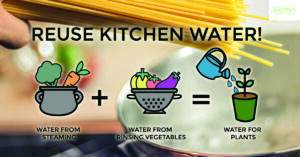 Use the water you used to boil or steam the veggies again by watering the plants with it when it cools. If you want to utilise that water for plants, don’t add salt to it. By dehydrating it, adding salt water to plant soil might harm the plant.
Use the water you used to boil or steam the veggies again by watering the plants with it when it cools. If you want to utilise that water for plants, don’t add salt to it. By dehydrating it, adding salt water to plant soil might harm the plant.
Kitchen dishwater
Unless you are not putting any chemicals in it, collecting dishwater and utilising the grey water for gardening is necessarily a smart idea. You may water both indoor and outdoor plants with the water you use to clean your dishes!
Reuse water of boiled pasta and egg
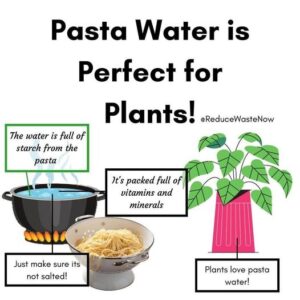 Without a question, not composting kitchen wastewater is a waste of rich fertiliser, especially if you don’t have the time or space to build a compost pile. Egg and pasta cooking water includes nutrients that support the health, vitality, and growth of your plants. Once you’ve collected your cooking water, allow it to cool fully before using or storing it.
Without a question, not composting kitchen wastewater is a waste of rich fertiliser, especially if you don’t have the time or space to build a compost pile. Egg and pasta cooking water includes nutrients that support the health, vitality, and growth of your plants. Once you’ve collected your cooking water, allow it to cool fully before using or storing it.
Rice water as the natural fertilizer
Both for plants and for hair development, rice water provides a lot of advantages! If you often cook rice, you can water plants with the rice water. For later use in watering plants, you can store rice water in a bottle. As rice water is known to contain the necessary NPK, this serves as a suitable fertiliser. Perfect for growing on a small scale!
Water used in soaked lentils
 Utilise a pot or any other container to clean fruits and vegetables instead of running water, and then utilise the water for irrigation. Additionally, this saves a tonne of water! Apply the same principle to the water used to clean or soak lentils.
Utilise a pot or any other container to clean fruits and vegetables instead of running water, and then utilise the water for irrigation. Additionally, this saves a tonne of water! Apply the same principle to the water used to clean or soak lentils.
The conservation of water on our planet is significantly impacted by such small initiatives. There will always be a benefit that appeals to you, whether we work to raise water quality, address water distribution inequality, or promote wildlife preservation.


